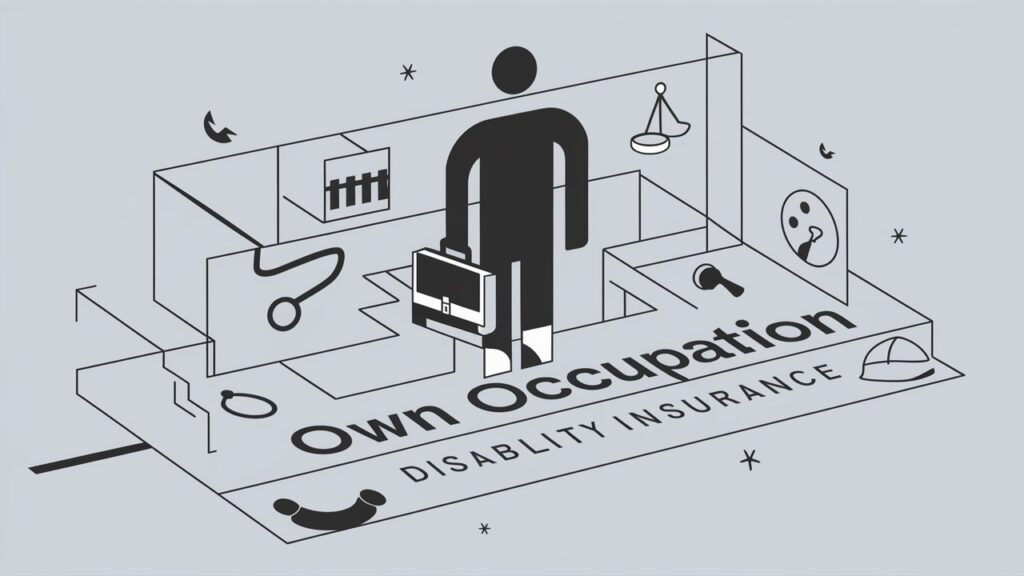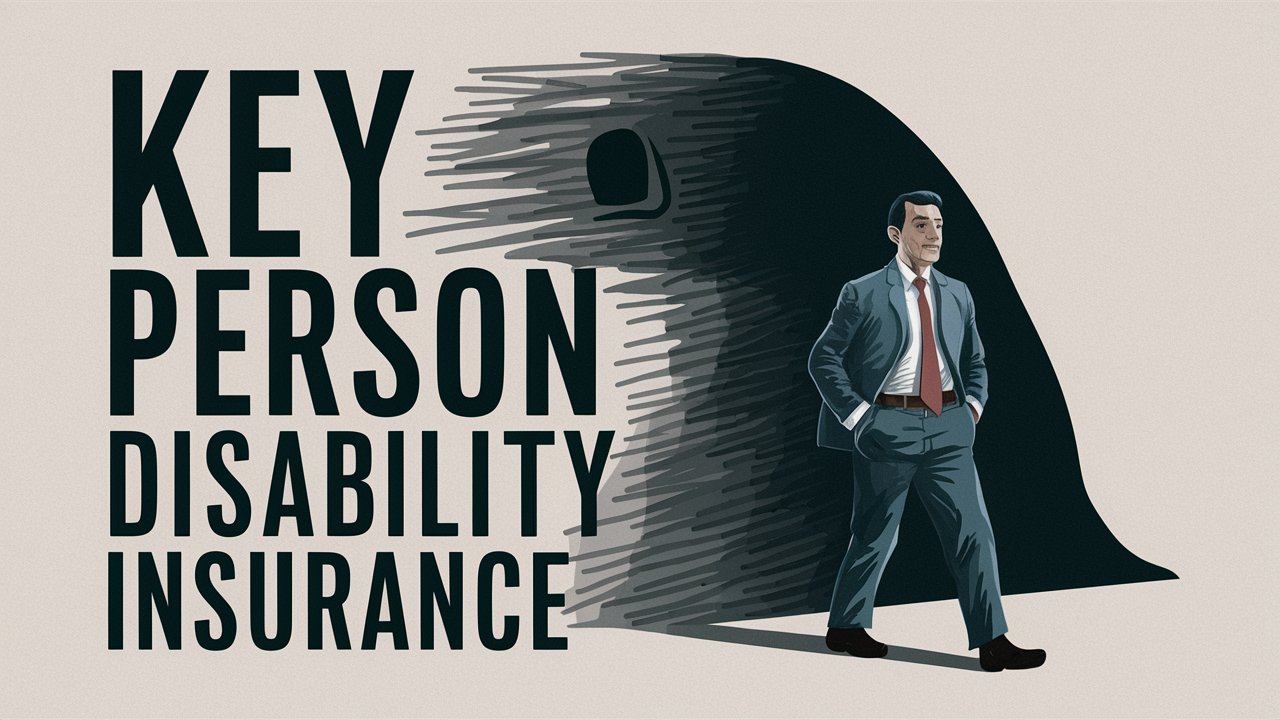Introduction
In today’s complex world, securing one’s financial future is paramount, and insurance plays a crucial role in achieving that security. Among the various types of insurance available, disability insurance often remains underappreciated until the need for it arises. Within the realm of disability insurance, “Own Occupation” disability insurance stands out as a particularly valuable and sometimes misunderstood option. This blog post delves into the surprising truth about Own Occupation disability insurance, exploring its significance, benefits, and the reasons why it might be the best choice for protecting your income.
Understanding Disability Insurance
Disability insurance is designed to provide financial support if you are unable to work due to illness or injury. This type of insurance helps replace a portion of your income, ensuring you can meet your financial obligations even when you cannot perform your job. There are two primary types of disability insurance: short-term and long-term.
Short-term disability insurance covers a portion of your salary for a limited period, typically three to six months, while long-term disability insurance provides coverage for more extended periods, sometimes until retirement age.
Within the scope of long-term disability insurance, there are different definitions of disability that determine how benefits are paid. One of the most important distinctions is between “Own Occupation” and “Any Occupation” disability insurance.
Own Occupation vs. Any Occupation Disability Insurance
To fully grasp the value of Own Occupation disability insurance, it’s essential to understand how it differs from Any Occupation disability insurance.
Any Occupation Disability Insurance
Any Occupation disability insurance is a type of policy that provides benefits only if you are unable to perform any job for which you are reasonably qualified by education, training, or experience. In other words, if you can work in any capacity, even if it’s not in your current profession, you may not receive benefits under an Any Occupation policy. This type of coverage is typically less expensive but can be less comprehensive in protecting your financial well-being.
Own Occupation Disability Insurance
Own Occupation disability insurance, on the other hand, offers a much broader scope of coverage. It provides benefits if you are unable to perform the duties of your specific occupation, even if you are capable of working in another capacity. For instance, if you are a surgeon who can no longer perform surgeries due to a hand injury but can still work as a medical consultant, an Own Occupation policy would still pay benefits.
This type of insurance is particularly valuable for professionals in highly specialized fields where their ability to perform specific tasks is critical to their income.
The Surprising Benefits of Own Occupation Disability Insurance
- Higher Level of Protection
The primary benefit of Own Occupation disability insurance is the higher level of protection it offers. Since the policy pays benefits if you cannot perform the duties of your specific job, it ensures that your income is safeguarded even if you can work in another capacity. This is especially important for professionals whose income is tied to their ability to perform specialized tasks, such as doctors, dentists, lawyers, and executives.
- Peace of Mind
Knowing that your income is protected if you can no longer perform your specific job provides immense peace of mind. This financial security allows you to focus on your recovery and explore other career opportunities without the added stress of financial instability.

- Flexibility in Career Transition
Own Occupation disability insurance offers flexibility if you need to transition to a different career due to your disability. For example, if you are a professional athlete who can no longer compete but can still work as a coach or sports commentator, your policy would still pay benefits, allowing you to pursue a new career path without a significant drop in income.
- Protection for Highly Specialized Professionals
For individuals in highly specialized professions, Own Occupation disability insurance is particularly valuable. These professionals have invested significant time and resources into developing their skills, and their ability to perform specific tasks is directly tied to their income. An Own Occupation policy ensures that their investment is protected, even if they can no longer work in their chosen field.
- Coverage for Partial Disabilities
Many Own Occupation disability insurance policies offer coverage for partial disabilities, meaning you can still receive benefits if you can perform some, but not all, of your job duties. This is particularly beneficial for individuals with progressive conditions or those who can still work part-time.
Common Misconceptions About Own Occupation Disability Insurance
Despite its benefits, Own Occupation disability insurance is often misunderstood, leading to several common misconceptions
- It’s Too Expensive
One of the most prevalent misconceptions is that Own This insurance is prohibitively expensive. While it is true that these policies can be more costly than Any Occupation policies, the difference in cost is often justified by the significantly higher level of protection they offer. Additionally, many insurers offer various options and riders that can make Own Occupation policies more affordable.
- It’s Only for High-Income Professionals
Another misconception is that Own Occupation disability insurance is only necessary for high-income professionals. While it is particularly valuable for those in specialized fields, anyone whose income is closely tied to their ability to perform specific job duties can benefit from this type of coverage. This includes not only doctors and lawyers but also skilled tradespeople, artists, and entrepreneurs.
- It’s Redundant if You Have Group Disability Insurance
Many people believe that if they have group disability insurance through their employer, they do not need an Own Occupation policy. However, group disability insurance often has limitations, such as lower benefit amounts and more restrictive definitions of disability. An individual Own Occupation policy can provide additional coverage and fill in the gaps left by group policies.
How to Choose the Right Own Occupation Disability Insurance Policy
Choosing the right Own Occupation disability insurance policy involves several important considerations
- Understand the Policy Definition
Different insurers may have varying definitions of Own Occupation disability. Some policies may require that you are unable to perform the duties of your specific occupation, while others may require that you are unable to perform any job duties related to your field. It’s crucial to understand the exact definition used in your policy to ensure you have the coverage you need.
- Evaluate the Benefit Period
The benefit period is the length of time the policy will pay benefits if you become disabled. Some policies offer benefits for a few years, while others may provide coverage until retirement age. Consider your financial needs and long-term goals when selecting a benefit period.
- Consider the Elimination Period
The elimination period is the amount of time you must wait after becoming disabled before benefits begin. Common elimination periods range from 30 to 90 days, but longer periods are also available. A shorter elimination period can provide quicker financial support, but it may also increase the cost of the policy.
- Look for Additional Riders
Many insurers offer additional riders that can enhance your Own Occupation disability insurance policy. Common riders include cost-of-living adjustments (COLA), which increase your benefits to keep pace with inflation, and future purchase options, which allow you to increase your coverage as your income grows.
- Compare Multiple Quotes
Insurance rates and policy terms can vary significantly between insurers, so it’s essential to compare multiple quotes to find the best coverage at the best price. Working with an experienced insurance agent or broker can help you navigate the options and make an informed decision.
Real-Life Examples of Own Occupation Disability Insurance in Action
To illustrate the value of Own Occupation disability insurance, consider the following real-life examples
- Dr. Smith, a Surgeon
Dr. Smith is an orthopedic surgeon who suffers a hand injury that prevents him from performing surgeries. With an Own Occupation policy, he can still receive benefits even if he works as a medical consultant or educator. This allows him to maintain his income while transitioning to a new role within his field.
- Ms. Johnson, a Professional Musician
Ms. Johnson is a concert pianist who develops a condition that affects her ability to play the piano. Her Own Occupation policy pays benefits, allowing her to focus on her recovery and explore alternative careers in music, such as teaching or composing.
- Mr. Davis, a High-Level Executive
Mr. Davis is a CEO of a successful company who experiences a debilitating illness that prevents him from fulfilling his executive duties. His Own Occupation policy provides financial support, enabling him to step down from his role and pursue other opportunities that align with his skills and interests.
The Role of Own Occupation Disability Insurance in Financial Planning
Own Occupation disability insurance is an essential component of a comprehensive financial plan. Here are some key ways it contributes to financial security:
- Income Protection
The primary purpose of Own Occupation disability insurance is to protect your income if you cannot perform your specific job. This ensures that you can continue to meet your financial obligations, such as mortgage payments, living expenses, and debt repayments, even if you are unable to work.
- Asset Preservation
Without disability insurance, you may be forced to liquidate your assets, such as retirement savings, investments, or real estate, to cover your living expenses. Own Occupation disability insurance helps preserve your assets by providing a steady stream of income during your disability.
- Maintaining Quality of Life
A disabling condition can significantly impact your quality of life. Own Occupation disability insurance provides financial stability, allowing you to focus on your recovery and well-being without the added stress of financial uncertainty.
- Long-Term Financial Planning
Disability insurance is a critical aspect of long-term financial planning. It ensures that you have a safety net in place to protect your income and assets, providing peace of mind and financial security for you and your family.
Conclusion
The surprising truth about Own Occupation disability insurance is that it offers a higher level of protection and flexibility than many people realize. By safeguarding your income if you can no longer perform the duties of your specific job, it provides financial stability, peace of mind, and the ability to explore new career opportunities.
Whether you are a highly specialized professional or someone whose income is closely tied to specific job duties, Own Occupation disability insurance can be a valuable addition to your financial plan. As with any insurance product, it’s essential to carefully evaluate your options, understand the policy terms, and choose the coverage that best meets your needs. By doing so, you can ensure that you are well-prepared for whatever the future may hold.
For more details please visit our home page: Click Here

